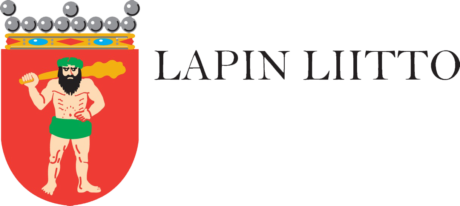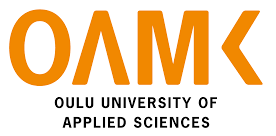


MoreNPBiz – More Natural Product Business
Due to the increasing and aging population and the rise in health and environmental awareness of consumers natural products or non-wood forest products (NWFP) business is becoming a mega trend globally.
Branch: Chemistry and bioeconomy
Duration: 01.01.2019 – 31.05.2021
Region: International
Financed by: Interreg Nord, Lapland Union, Region Norrbotten and Kaustinen region
Project Manager: Leena Favén
Background
Due to the increasing and aging population and the rise in health and environmental awareness of consumers natural products or non-wood forest products (NWFP) business is becoming a mega trend globally. Nordic health and well –being business was 12.1 billion € in 2016 and it is expected to grow to 36 billion € according to the Natural Products Scandinavia newsletter 2017.
Drying
Drying is a very common method to preserve or process fresh natural product materials. This process is energy intensive and can represent up to 70% of the energy costs in a production chain. Choosing the most suitable technology and source of energy is essential to make the business economically profitable. One of the bottle necks is the high cost for energy. A possible solution to this problem could be to increase the use of waste energy in drying processes which would enhance recourse efficiency and sustainable development as well and most importantly the cost efficiency in the natural products business would be enhanced.
By developing energy efficient drying technologies, product quality sustaining processes and co-operation of enterprises in the chain of the natural product processing industry, the project facilitates the competitiveness of Nordic natural product processing industry and its access to the international market. Analyses of the contents of active ingredients in the products are also prerequisites for the access. Quality assurance methods for plant materials will be evaluated in order to find cheap and suitable methods for verification of the Nordic product quality. By organizing common activities and demonstration of business partnership models between waste energy suppliers and processing enterprises this project facilitates enlargement of the natural product business.
EU is pushing for resource efficiency in order to keep the European economy in balance. By utilizing waste energy from various sources such as farms, power plants or industrial manufacturing sites green economy can be enhanced. The goal of the project is to study various available waste energy sources for drying and to give recommendations how to utilize the studied energy sources in order to minimize the costs associated to drying processes.
The demand for high quality Nordic products is increasing mainly because Nordic natural products are regarded as reliable and authentic. Often they are also organic and collected wild. However if drying is not properly performed the quality of the dried material can deteriorate due to decreasing color, aroma, quantity and bioactivity of valuable components. In addition, the expected high quality should also be verified in order to get better prices for the products as premium products. The goal here is to study and improve the drying processes and quality assurance methods of selected plant materials and to improve the selected drying equipment/system.
The main activities
- enhancing competitiveness of enterprises by developing applicable methods for the verification of natural product quality,
- improving drying processes and the energy efficiency of drying,
- evaluating waste energy sources and their suitability for being energy sources for natural product drying,
- designing new partnership business models between energy producers and natural product processing enterprises.
The following results will be achieved
- information package about energy efficient drying techniques of plant materials and operational management of energy efficient drying units,
- recommendations and examples how to improve energy-efficiency and waste energy utilization and product quality in existing selected drying systems,
- examples of the effect of studied drying processes on the quality characteristics of selected plant species,
- information package about tested and economically feasible quality assessment methods and laboratory services for natural products,
- evaluation of partnership models between energy operators and processing industry,
- proposals for potential commercial symbioses,
- network of business actors and organizations in the North.
Results and conclusions
The main achievements were the instructions how to improve energy efficiency of existing convective dryers, how drying temperatures affect energy consumption and quality as well as the waste energy map showing potential waste energy sources for drying. The design and construction of the mobile dryer and the demo dryer will help in testing and optimization of drying processes.
Small and medium size enterprises in the business of natural products have limited resources to study on their own how to improve quality and profitability. The knowledge and the network provided by the project are important for the development and growth of companies. Energy costs are typically high in drying and the quality of dried products can also vary if processes are not optimized. There is still a lot of work in the field of drying: different compounds favor different drying temperatures. Thus, the drying conditions should be evaluated for each species depending on its compounds and applications (supplements, cosmetics, food, pigments). Investment costs for dryers are high and enterprises need drying clusters or mobile/rentable drying units, which they could use. Enterprises also need more networks, where to find buyers for products and more product concepts alongside dried plant powders.
By having projects partners cross-border, we were able to combine our knowledge on dryers, drying technologies, modelling of drying processes and quality of plants. Due to this, were able to distribute our knowledge and the obtained results more widely to the enterprises in the region. Now there is a better potential for building up the Nordic drying cluster and nature-based entrepreneurship cross-border activities to meet the global demand for premium quality natural products.
Besides reading the results from the webpages, we strongly recommend enterprises to contact and ask for information. By email, phone or meeting each another we can provide specific and detailed information needed by enterprises.
Dr. Leena Favén
Project Manager
Centria University of Applied Sciences
Finland
leena.faven@centria.fi
+358 44 7250 273
Oulu University of Applied Sciences (OAMK)
Jaana Väisänen
Luleå University of Technology (LTU)
Lars Westerlund
Hushållningssällskapet (HS)
Helena Zimmer
In cooperation


